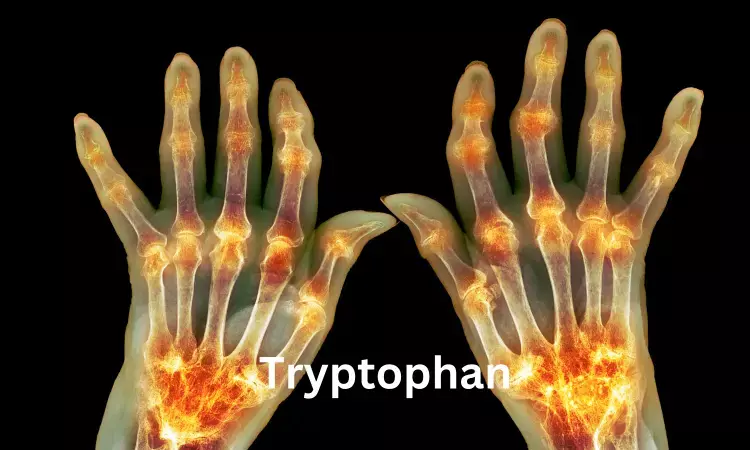- Home
- Medical news & Guidelines
- Anesthesiology
- Cardiology and CTVS
- Critical Care
- Dentistry
- Dermatology
- Diabetes and Endocrinology
- ENT
- Gastroenterology
- Medicine
- Nephrology
- Neurology
- Obstretics-Gynaecology
- Oncology
- Ophthalmology
- Orthopaedics
- Pediatrics-Neonatology
- Psychiatry
- Pulmonology
- Radiology
- Surgery
- Urology
- Laboratory Medicine
- Diet
- Nursing
- Paramedical
- Physiotherapy
- Health news
- Fact Check
- Bone Health Fact Check
- Brain Health Fact Check
- Cancer Related Fact Check
- Child Care Fact Check
- Dental and oral health fact check
- Diabetes and metabolic health fact check
- Diet and Nutrition Fact Check
- Eye and ENT Care Fact Check
- Fitness fact check
- Gut health fact check
- Heart health fact check
- Kidney health fact check
- Medical education fact check
- Men's health fact check
- Respiratory fact check
- Skin and hair care fact check
- Vaccine and Immunization fact check
- Women's health fact check
- AYUSH
- State News
- Andaman and Nicobar Islands
- Andhra Pradesh
- Arunachal Pradesh
- Assam
- Bihar
- Chandigarh
- Chattisgarh
- Dadra and Nagar Haveli
- Daman and Diu
- Delhi
- Goa
- Gujarat
- Haryana
- Himachal Pradesh
- Jammu & Kashmir
- Jharkhand
- Karnataka
- Kerala
- Ladakh
- Lakshadweep
- Madhya Pradesh
- Maharashtra
- Manipur
- Meghalaya
- Mizoram
- Nagaland
- Odisha
- Puducherry
- Punjab
- Rajasthan
- Sikkim
- Tamil Nadu
- Telangana
- Tripura
- Uttar Pradesh
- Uttrakhand
- West Bengal
- Medical Education
- Industry
Altering Tryptophan metabolism may pave path for treating Rheumatoid arthritis

Tryptophan is an essential amino acid used to make proteins however our body does not make it, so it has to come from our diet. Foods that contain tryptophan include animal products like chicken and fish and plant foods like nuts or soy.
Alterations in tryptophan (Trp) metabolism have been reported in inflammatory diseases, including rheumatoid arthritis (RA). However, understanding whether these alterations participate in RA development and can be considered putative therapeutic targets remains undetermined.
A team of investigators combined quantitative Trp metabolomics in the serum from patients with RA and corrective administration of a recombinant enzyme in experimental arthritis to address this question. The study published in Annals of Rheumatic Diseases reports preclinical and clinical data point out that alterations in the Trp metabolism is a viable strategy and can be considered as a new therapeutic avenue.
Researchers conducted a targeted quantitative Trp metabolomics test on the serum from 574 previously untreated patients with RA from the ESPOIR (Etude et Suivi des POlyarthrites Indifférenciées Récentes) cohort and 98 healthy subjects. A validation cohort involved 69 established patients with RA. Dosages were also done on the serum of collagen-induced arthritis (CIA) and collagen antibody-induced arthritis (CAIA) mice and controls. A proof-of-concept study evaluating the therapeutic potency of targeting the kynurenine pathway was performed in the CAIA model.
The key findings of the study are
• In the study, differential analysis revealed dramatic changes in Trp metabolite levels in patients with RA compared with healthy controls.
• Decreased levels of kynurenic (KYNA) and xanthurenic (XANA) acids and indole derivatives, as well as an increased level of quinolinic acid (QUIN), were found in the serum of patients with RA.
• They correlated positively with disease severity (assessed by both circulating biomarkers and disease activity scores) and negatively with quality-of-life scores.
• Similar profiles of kynurenine pathway metabolites were observed in the CAIA and CIA models. From a mechanistic perspective, they demonstrated that QUIN favours human fibroblast-like synoviocyte proliferation and affected their cellular metabolism, through inducing both mitochondrial respiration and glycolysis.
• Finally, systemic administration of the recombinant enzyme aminoadipate aminotransferase, responsible for the generation of XANA and KYNA, was protective in the CAIA model.
Researchers concluded that, "Altogether, our preclinical and clinical data indicate that alterations in the Trp metabolism play an active role in the pathogenesis of RA and could be considered as a new therapeutic avenue, ended the researchers."
Reference: Moulin D, et al "Counteracting tryptophan metabolism alterations as a new therapeutic strategy for rheumatoid arthritis" Ann Rheum Dis 2023; DOI: 10.1136/ard-2023-224014.
MSc. Neuroscience
Niveditha Subramani a MSc. Neuroscience (Faculty of Medicine) graduate from University of Madras, Chennai. Ambitious in Neuro research having worked in motor diseases and neuron apoptosis is interested in more of new upcoming research and their advancement in field of medicine. She has an engrossed skill towards writing and her roles at Medical dialogue include Sr. Content writer. Her news covers new discoveries and updates in field of medicine. She can be reached at editorial@medicaldialogues.in
Dr Kamal Kant Kohli-MBBS, DTCD- a chest specialist with more than 30 years of practice and a flair for writing clinical articles, Dr Kamal Kant Kohli joined Medical Dialogues as a Chief Editor of Medical News. Besides writing articles, as an editor, he proofreads and verifies all the medical content published on Medical Dialogues including those coming from journals, studies,medical conferences,guidelines etc. Email: drkohli@medicaldialogues.in. Contact no. 011-43720751


